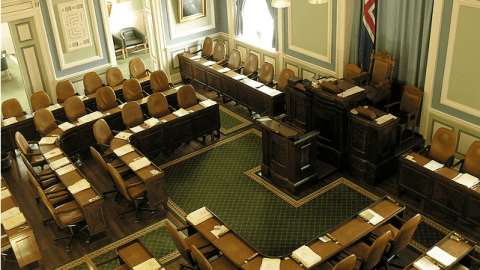Crowdsourcing Iceland’s New Constitution

Iceland’s 320 000 citizens all have a say in the writing of their new constitution. With the help of Facebook, Twitter, YouTube and Flickr, the 25-member council drafting the constitution is reaching out to Icelanders to get their recommendations. Everyone registered with their name and address can submit a suggestion which after being approved by local staff is passed on to the council and becomes open for discussion online.
The recommendations span from improving the treatment of livestock to making it easier for authorities to seize stolen property. Icelanders get to weigh in on hotly debated topics like nature conservation and ownership of Iceland’s natural resources. If a recommendation is approved by the council, it is added to the draft constitution and open to comment on their website. The draft should be completed by the end of June and sent to the parliament for debate and approval.
What Iceland is doing is truly great and I think is the way of the future when it comes to solving difficult problems and making decisions concerning entire communities. However, the fact that the discussion is mostly carried out through Facebook, only shows the dire need for innovative, well-designed platforms able to facilitate the specific process of crowdsourcing solutions. We need online platforms and tools for large-scale brainstorming, organizing and moderating discussions, synthesizing ideas and passing them on to the next stages of planning and execution with the ability to optimize and delegate tasks according to each person’s best abilities and available resources. I can’t wait to see such tools as well as more examples of using the collective power for doing good.
Learn more about the Icelandic process here.
via PhysOrg





